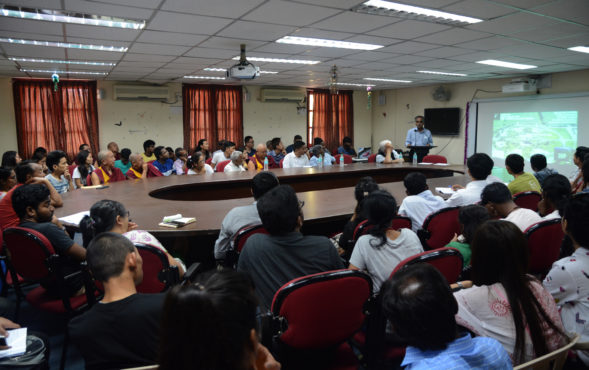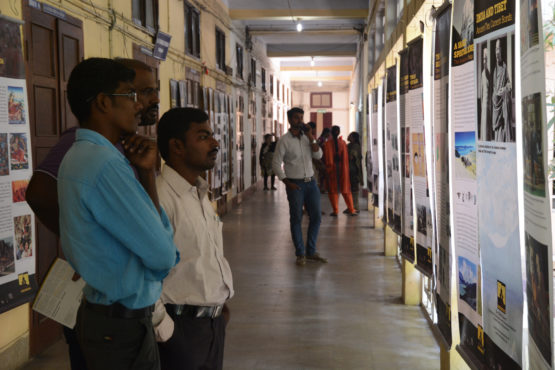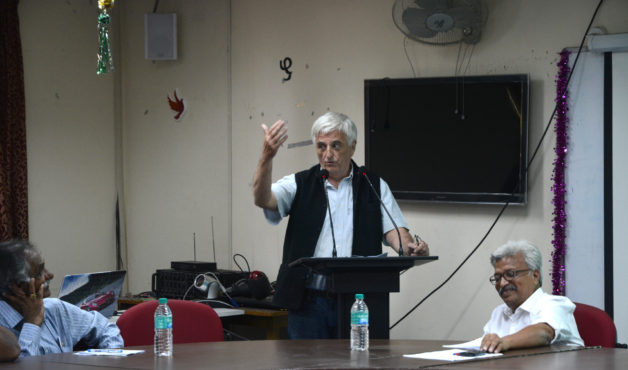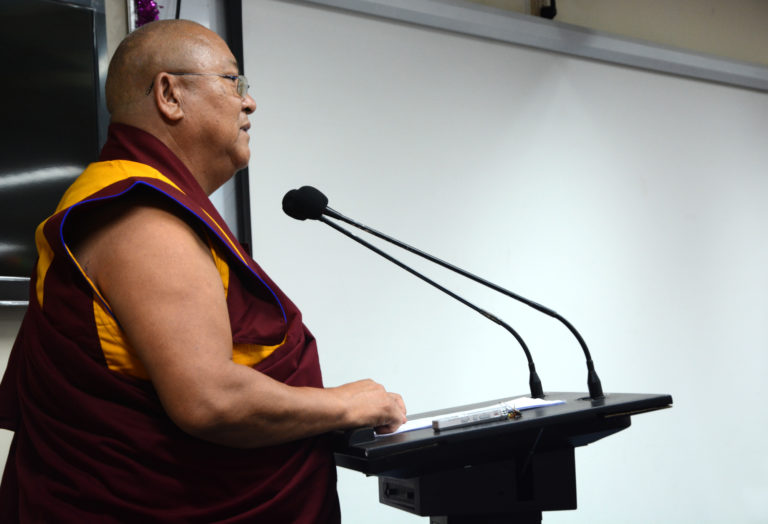Two-day Thank You India Program Concludes Successfully in Chennai
[Source:tibet.net]

The concluding ceremony of the two-day ‘Thank You India’ program at Chennai, 25 March 2017.
CHENNAI: The two-day Thank You India program organised by DIIR’s Tibet Museum and India-Tibet Coordination Office based in Delhi concluded successfully on 25 March at Madras University, Chennai.
Speakers at the concluding ceremony of the program include eminent Tibet scholar Claude Arpi, Brigadier (rtd) R S Vasan, Dr Sonika Gupta from Madras University, Dr Bernard D’Sami from Loyola College, Ven Geshe Nyima Tashi, academic head of Sera Jey monastery and Dr Dorje Rapten from the Mentsekhang clinic based in Bangalore.
At least several hundred people including students and Tibet supporters from across the city attended the concluding ceremony.
Dr Ramumanivannan, professor of social science at Madras University, delivered the introductory remarks of the ceremony.
The keynote speaker at the concluding session was Tibet scholar Claude Arpi who spoke on the geopolitical significance of Tibet to India and other Asian countries. He underlined Tibet as the source of ten major rivers of Asia on which over 1.3 billion people depend for livelihood.
He also shed light on China’s rapid industrialization and mining of the Tibetan plateau, which is resulting in severe pollution of the pristine Tibetan rivers leading to disastrous effects on people living downstream.
Naval Brigadier (rtd) R S Vasan spoke about the expansionist policies of China judging from the Chinese government’s aggressive postures in the South China Sea. He also spoke about the growing network of railway lines in China which he called was build solely to facilitate rapid reinforcements to aid military objectives.
Dr Bernard D’Sami, professor at Loyolla College spoke about Tibet from the parameters of human rights and the violation of these fundamental rights by China in Tibet. He called on China to allow Tibetans to freely practise their culture and religion and, paid tributes to the sacrifices of the 146 self-immolators who sacrificed their lives for the Tibet cause.
Dr Sonika Gupta from Madras University spoke about the Central Tibetan Administration and the democratic evolution of the Tibetan polity.
Geshe Nyima Tashi from Sera Jey spoke about the rich historical bond shared by Tibet and India by emphasising the links between Nalanda University of ancient India and Tibetan Buddhism.
Doctor Dorji Rapten spoke about the rich Tibetan medical tradition of healing. The talks were followed by a question and answer session with the audience.
The program concluded with a thank you address by Mr Jigme Tsultrim, coordinator of ITCO.

Visitors at Tibet Museum’s exhibition during the program, 25 March 2017.

Tibet scholar Claude Arpi at the concluding session of the two-day program, 25 March 2017.

Geshe Nyima Tashi from Sera Jey speaking about the historical relation between Nalanda University and Tibetan Buddhism, 25 March 2017.
